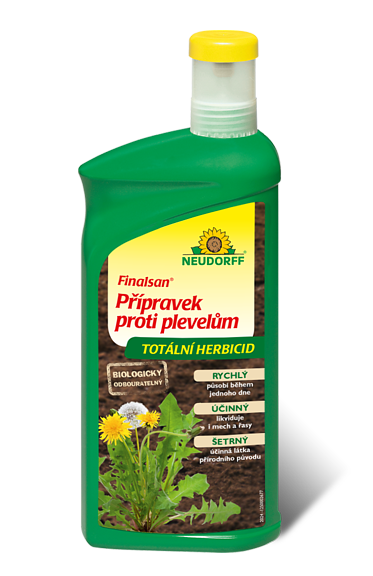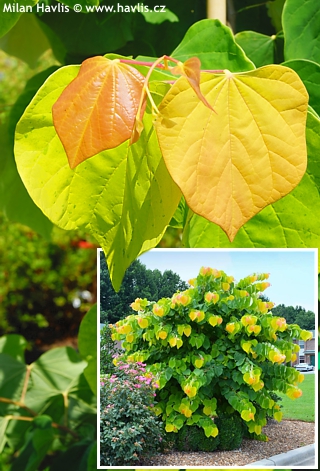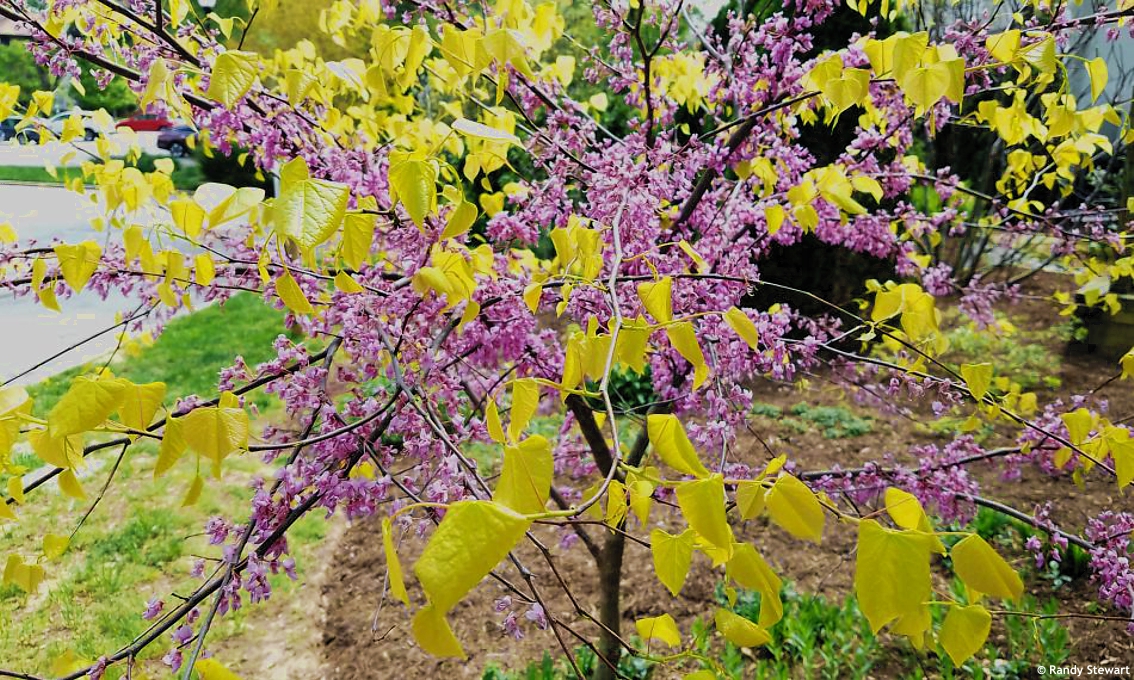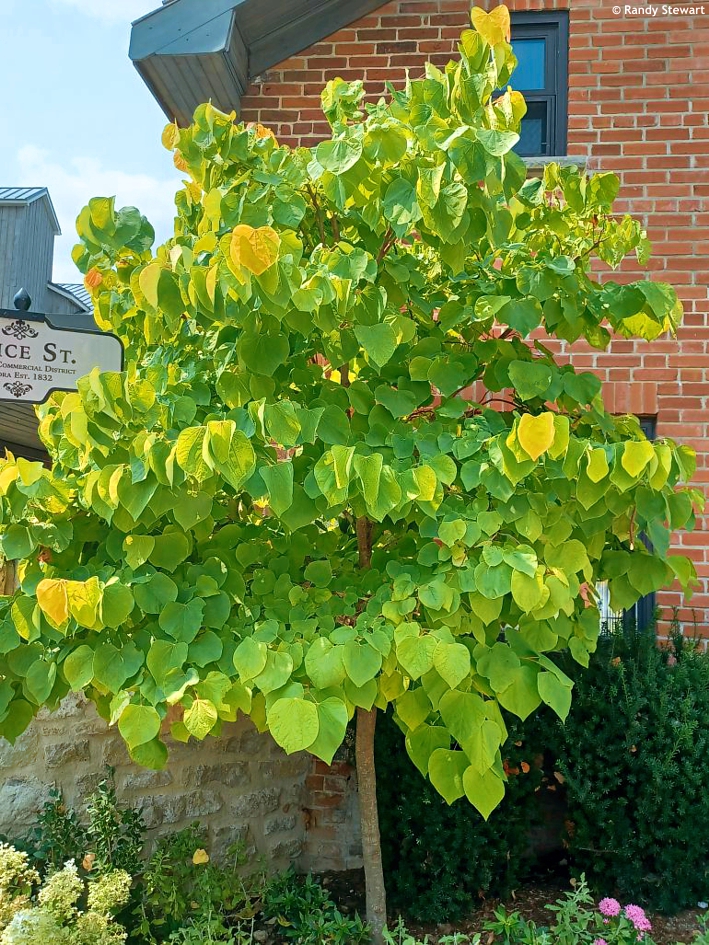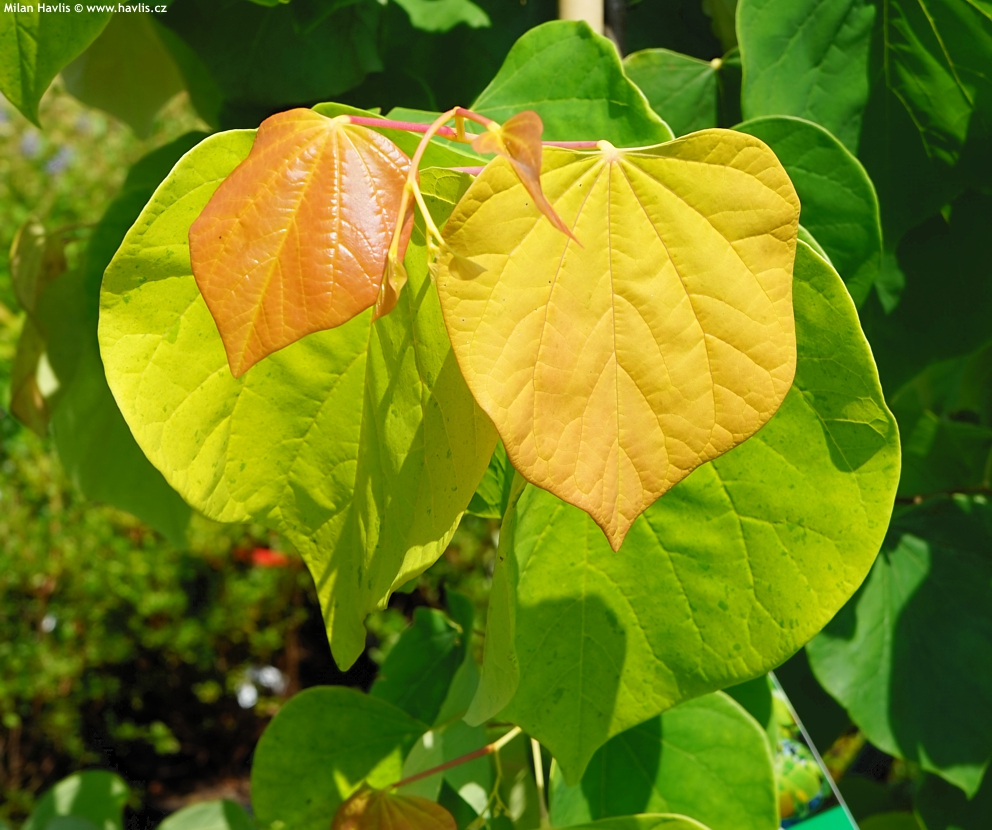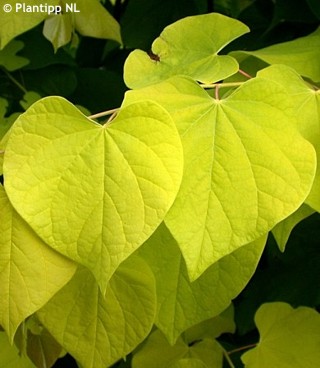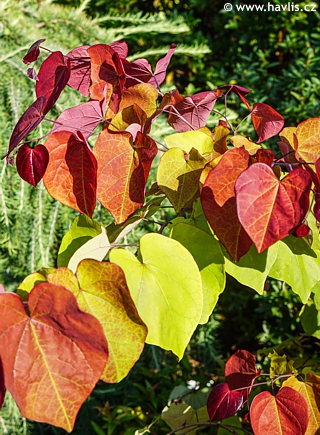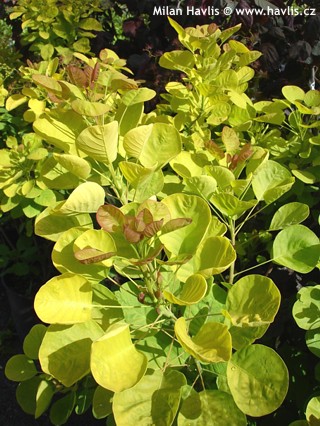Cercis canadensis 'JN2' THE RISING SUN™ eastern redbud, love tree
Cercis
Eastern redbud is a lovely, deciduous, small tree or a large shrub where the word “love” is the key feature. Why? Because its leaves are in a perfect shape of a heart that we are used to drawing as an icon. There are quite a few varieties in trade today and they vary by leaf colour or plant habit or size. I am sure you can find a variety suitable for your garden.
THE RISING SUN™ is an American variety of Eastern redbud found by Ray and Cindy Jackson for their Jackson Nursery in Belvidere, Tennessee, as a chance seedling. It boasts large, 10-14 cm long and wide, broadly heart-shaped leaves which emerge bright golden or orange while older leaves are bright yellow-green and chartreuse. They are deciduous and in autumn they turn rich ruby red and yellow. In early spring appear small, pea-like, pink, stalk-less flowers in small clusters growing on bare wood. US plant patent No. PP21451 was granted in 2010.
It grows fast and forms a rounded habit with almost uniformly layered branches making attractive tiers one above another. Young twigs can be pruned if you wish to prune the plant or to keep it smaller. However, do not cut into old wood – badly treated cuts may be infected and the plant may die.
Eastern redbud is relatively soil tolerant but does best in moist but well-drained soil. RISING SUN™ copes well with drought and its leaves don’t suffer from sunscorch. It resents transplanting. For the best foliage colour grow it in full sun, young plants benefit from some shelter from drying winds. It is hardy to min. -29 °C (USDA zone 5), possibly yet a few degrees lower.
Last update 11-11-2021

2 261 Kč

14 820 Kč
Goods are shipped all over Europe. For Russia and U.K. and for further details please read about SHIPPING OPTIONS HERE.
Are you interested in a serious discount for orders NOV-FEB? Check your options here.
THE PRICES INCLUDE VAT of 15%. For quick conversion you can use 1 CZK = approx. 0.04 EUR
- STANDARD QUALITY - Plants of this group are 1st class quality with number of branches and overall density adequate to their size and age, considering they were container grown.
- DE LUXE QUALITY - This label guarantees a luxurious quality of manually selected plants that, compared to their height and age, are exceptionally dense and beautiful.
- EXTRA - These plants are usually mature and bigger specimens with exceptional overall appearance.
- STANDARD (as described in the plant form) means a tree with a trunk of 190-210 cm and a crown at the top, unless specified differently. The commercial size for trees is their girth measured in the height of 1m from ground.
- HOBBY - These plants are of the same quality as our standard-quality plants but younger and therefore cheaper.
- SHRUB - a woody plant with branches growing bushy from the ground level.
- HALF-STANDARD or MINI-STANDARD - a small tree with shorter trunk, its size is usually specified.
- FEATHERED - These are trees with branches growing already from the base of the trunk and up along the stem.
- GRASSES and PERENNIALS - Sizes given usually read the diameter of the pot or the clump, as specified.






























